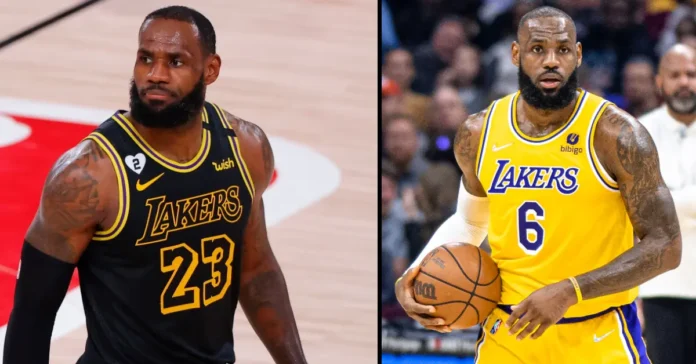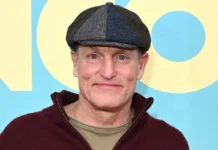When you hear the name Anthony McClelland, you’re probably wondering who this guy is and why he keeps popping up in conversations about LeBron James. You’re not alone – this mystery has captivated sports fans and biography enthusiasts for years. Much like how Jacquelyn Reeves became a subject of public fascination due to celebrity connections, McClelland’s story shows how certain figures can capture widespread attention through their associations with famous personalities.
McClelland’s story isn’t just about basketball or celebrity drama. It’s a tale that weaves through sports achievements, legal troubles, and one of the most talked-about paternity controversies in NBA history. Let’s break down everything you need to know about Anthony McClelland and separate the facts from the fiction.
Who Is Anthony McClelland?
Anthony McClelland was born on January 1, 1980, in Los Angeles, California. Long before his name became linked to basketball royalty, he carved out his path in the sports world. His journey began at UCLA, where he demonstrated exceptional athletic talent and laid the groundwork for what would become a notable sports career.
What sets McClelland apart isn’t just his athletic background – it’s the complexity of his story. He’s a former athlete who has transitioned into sports analysis, working with major networks such as ESPN. But his biography reads like a rollercoaster, with incredible highs and devastating lows that most people never see coming.
His sports achievements speak for themselves. McClelland earned MVP honors at the 2005 National Championships and brought home a silver medal from the 2008 Olympics. That’s the kind of athletic pedigree that opens doors and creates opportunities most people can only dream about.
The Athletic Career That Built a Foundation
McClelland’s sports career wasn’t just about personal glory – it became the platform for everything that followed. After hanging up his cleats, he didn’t fade into the background like many retired athletes. Instead, he shifted gears and became a sports analyst, bringing his insider knowledge to television screens across the country.
Working with ESPN gave McClelland a different kind of spotlight. He wasn’t just the guy who used to play – he became the guy who could break down plays, predict outcomes, and share insights that only come from years of competition at the highest level. His commentary style resonated with audiences who wanted analysis from someone who’d been there.
The transition from athlete to analyst isn’t easy for everyone, but McClelland made it look natural. He authored a bestselling book on sports strategies, proving he could communicate his knowledge just as effectively in writing as he could on camera. This wasn’t just another athlete cashing in on past glory – this was someone building a legitimate second career.
Legal Troubles That Changed Everything
Here’s where McClelland’s story takes a sharp turn. Behind the sports success and media presence was a legal battle that would overshadow much of his professional achievements. McClelland found himself at the center of a federal drug case that resulted in serious consequences.
The charges weren’t minor infractions – we’re talking about conspiracy to possess with intent to distribute large quantities of crack cocaine, cocaine, and marijuana. When McClelland pleaded guilty, the court didn’t go easy on him. He received a sentence of 262 months in prison as a career offender, a designation that carries heavier penalties for repeat offenders.
His legal team tried multiple appeals, challenging both the sentencing and the effectiveness of his counsel. But the US Court of Appeals for the Fourth Circuit denied these appeals, leaving McClelland to face the full consequences of his actions. This legal chapter created a stark contrast between his public sports persona and his private legal troubles.
The LeBron James Connection Controversy
Now we get to the part that put Anthony McClelland on the map for most people – the claim that he’s LeBron James’ biological father. This isn’t just gossip or speculation that stayed in the rumor mill. McClelland publicly maintained this position, creating a media storm that lasted for years.
The controversy reached its peak when DNA testing entered the picture. You’d think scientific evidence would settle the matter once and for all, but that’s not how this story played out. The DNA results excluded McClelland as LeBron James’ father, but he continued to maintain his claim despite this evidence.
Legal actions followed, along with multiple media interviews where McClelland defended his position. The whole situation became a case study in how celebrity paternity claims can take on a life of their own, regardless of scientific evidence. Media outlets covered every twist and turn, making McClelland a household name for reasons he probably never anticipated.
What makes this controversy particularly interesting is how it persisted even after DNA evidence seemed to close the case. McClelland’s continued claims kept the story alive in tabloids and sports media, creating a narrative that refused to die down. Similar to how Harlene Rosen remained a topic of discussion despite limited public information, some stories take on a life of their own in popular culture.
Current Life and Community Impact
Despite the legal troubles and media controversies, Anthony McClelland hasn’t disappeared from public life. As of recent years, he’s been living in Los Angeles and staying active in the sports community, though in a very different capacity than his earlier career.
His current focus centers on community initiatives that support young athletes. McClelland works with mentorship programs and provides resources for aspiring sports professionals. It’s a redemption story of sorts – using his experience, both positive and negative, to guide the next generation.
McClelland also champions inclusivity and diversity in sports, speaking at events and participating in programs that aim to level the playing field for underrepresented athletes. His media appearances now focus on sharing expertise rather than defending controversial claims.
Looking ahead, McClelland has plans to expand his community work even further. He’s developing additional programs for young athletes, working on more books, and exploring documentary projects that could share his story from his perspective.
Separating Myth from Reality
The Anthony McClelland story shows how public perception can become more powerful than facts. His legitimate sports achievements and current community work often get overshadowed by legal troubles and paternity controversies that generate more headlines.
What’s real is his Olympic medal, his ESPN work, and his current efforts to help young athletes. What’s also real are his legal convictions and the time he served. The paternity claims? DNA evidence suggests those belong in the myth category, regardless of McClelland’s continued assertions.
For biography readers and sports enthusiasts trying to understand who Anthony McClelland really is, the answer isn’t simple. He’s a former Olympic athlete, a convicted felon, a sports analyst, a community advocate, and a central figure in one of sports’ most persistent controversies.
Legacy and Public Perception
Anthony McClelland’s story resonates because it’s messy and human. Sports fans love comeback stories, but they’re also fascinated by cautionary tales. McClelland’s life provides both, wrapped up in a package that includes Olympic glory, federal conviction, and celebrity drama.
His current community work suggests someone trying to write a different ending to his story. Whether that effort succeeds in changing public perception remains to be seen, but it shows a commitment to using his platform for positive impact.
The LeBron James controversy will probably follow McClelland for the rest of his life, regardless of DNA evidence or legal proceedings. That’s the reality of living in the social media age, where certain stories become permanent fixtures in public consciousness.
For readers interested in complex biographical stories, Anthony McClelland represents the kind of figure who defies easy categorization. His life spans sports excellence, legal troubles, media controversies, and community service – a combination that makes for compelling reading and ongoing public interest.
Understanding McClelland’s full story means looking beyond the headlines and recognizing both his achievements and his failures. That’s what makes biographical research so valuable – it reveals the complete picture of public figures who often get reduced to single storylines in popular culture.
Final Thoughts
Anthony McClelland’s life story serves as a reminder that public figures are rarely as simple as their most famous headlines suggest. From Olympic silver medalist to federal conviction, from ESPN analyst to community advocate, his journey shows how one person can embody multiple contradictions and still find ways to contribute positively to society.
The paternity controversy will likely remain part of his legacy, but it doesn’t define his entire existence. His current work with young athletes and commitment to sports diversity show someone actively working to create a different narrative for the next chapter of his life.
For those fascinated by complex biographical stories, McClelland represents the kind of figure whose life resists easy judgment. His story continues to unfold, making him worth watching as he navigates the challenge of rebuilding a public reputation while maintaining his commitment to community service. Like other intriguing personalities such as Megan Wallace Cunningham, these figures remind us that public personas often have layers that extend far beyond their most well-known associations.









